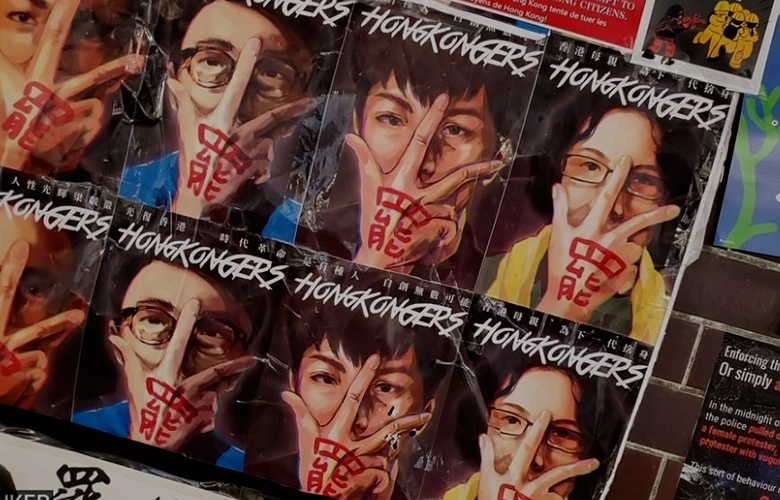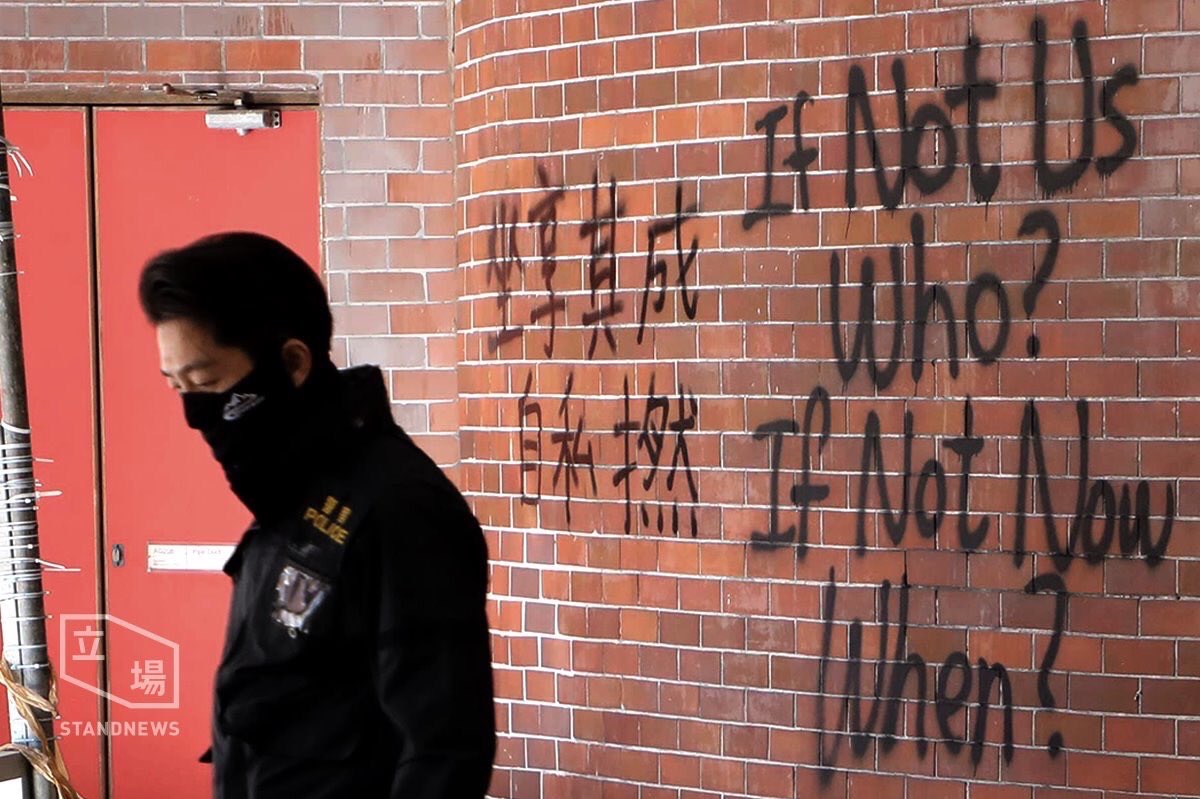
November 25, 2019 – Hong Kong University: I am lecturing to Hong Kong locals about cross-cultural communication in the midst of a 6 month and ongoing protest movement that has gripped the city. The significance of discussing culture in this environment is not lost on me. Despite the tear gas, the protests, the clashes between citizens and law enforcement, the culture of Hong Kong is shining.
Because above politics, above power, above the law, above opinion, culture exists whether you like it or not. Whether you want it or not. And there ain’t a damn thing China can do about that.
Hong Kong’s society has carved its own pathway, significantly divergent from China since Britain took control of it during the Opium Wars in 1842.
Despite what may be on a paper, in a law, laid out in an agreement, Hong Kong differs greatly from China and any other country for that matter. It is its own living breathing culture formed by the melding of the British and Chinese and all the other ethnicities who have made a home within its mountains. These people have been woven and stitched together creating a unique tapestry, a singular identity that exists today. The people of Hong Kong do not call themselves Chinese, they prefer to be known as Hong Kongers and that is what they are. It is their identity, it is their birthright. This is why they protest.
When I start my first lesson, I always ask the students to write down their name, the languages they speak, 3 personality traits, countries they have lived in, favourite foods, pastimes, clothing, religion, among a host of other identifying factors. We then discuss what we believe to be a personal choice over what they have adopted due to the culture around them. What I always find fascinating about Hong Kongers is the diversity of their answers. Whilst an outsider may think that a Hong Konger will name Chinese New Year as their favourite holiday and some kind of Chinese dish as their comfort food. More often than not, the youth of Hong Kong will throw out an answer like Christmas as their holiday of choice and Japanese as their favourite dish.
China knows this though, hence their attempt to get a national curriculum into the Hong Kong school system in 2012. Change the minds of the youth and you will have a more compliant society when they come of age. Just many of the subtle ways China is trying to turn the ship away from Hong Kong’s 156 years of British rule. In 2014, elections were conducted using a list of candidates vetted by Beijing and this sparked a two and a half month protest, now known as the Umbrella movement. So while China could have continued with the creeping policies and a gradual erosion of the Hong Kong way of life, this year the introduction of the extradition bill put the underlying impasse of ideals between Hong Kong and China squarely on the table.
A match was struck and millions of Hong Kongers poured into the streets to stop it. For if the extradition bill was passed, any Hong Konger could “be subject to arbitrary detention, unfair trial and torture under China’s judicial system” (Hong Kong-China extradition plans explained-BBC News). Thus perceived by the Hong Kong public as a direct attack on the current freedoms they enjoy.
Over the last 6 months I have watched the peaceful, disciplined, hard working citizens of Hong Kong turn into masked street bandits of all ages, coordinating chaos across the city as the government watch helplessly. A government that grossly underestimated the will and wishes of its people, who mistook the people’s previous discipline and peacefulness as obedience and concession. How wrong they were.
I am sensitive to the fight of the Hong Kongers as this is my home. I wish for a leadership that can discuss the importance of Hong Kong culture and its way of life and how peace could be restored if the people in power would respect and understand what it is that they seek to keep. In our cross cultural communication class we discuss how one must understand their own culture, motivations and biases built around their existence and also the mindset, motivations and biases built into the other whom you wish to dialogue with. From this base you can begin a discussion. I don’t expect China to care for such a dialogue.

Uncertainty is never a good place to live in for a long time. As someone who loves to know the answers, I have none. All I know is that we, that live here in Hong Kong, are watching a defining moment of this country’s history. A seismic shift in its culture, an anchoring of its foundations or a tsunami of China’s power washing away its beautiful, unique and intricate history.
All I can do is continue to teach understanding and tolerance as people work and communicate across different cultures, in the hope that I can make a tiny ripple around me in the midst of a long storm.
Tips on Working Cross Culturally in Entertainment
Advocacy for Mental Health even if you are OK


Anna Robb is Co-Founder and Managing Director for TheatreArtLife. Anna is an experienced Producer/Production Stage Manager. Her 20-year work history spans Asia Pacific, the Americas, Africa, the Middle East and Europe. She has worked for companies such as Cirque du Soleil, Franco Dragone Entertainment Group, Christie Digital Systems and The Sydney Opera House. Anna was an integral part of the research and development, training and formation, creation and operation of the 250 million dollar aquatic show, The House of Dancing Water in Macau. She also maintained the daily operations of this complex show as the head of Stage Management for 7 years. Anna has been employed on over 70 shows in the areas of concerts, arena events, corporate events, trade shows, musical theatre, plays, dance, circus, outdoor festivals and mega shows. Anna holds a honours degree in Design for Theatre and Television and is passionate about the evolution of the industry.
Read Full Profile© 2021 TheatreArtLife. All rights reserved.

Thank you so much for reading, but you have now reached your free article limit for this month.
Our contributors are currently writing more articles for you to enjoy.
To keep reading, all you have to do is become a subscriber and then you can read unlimited articles anytime.
Your investment will help us continue to ignite connections across the globe in live entertainment and build this community for industry professionals.